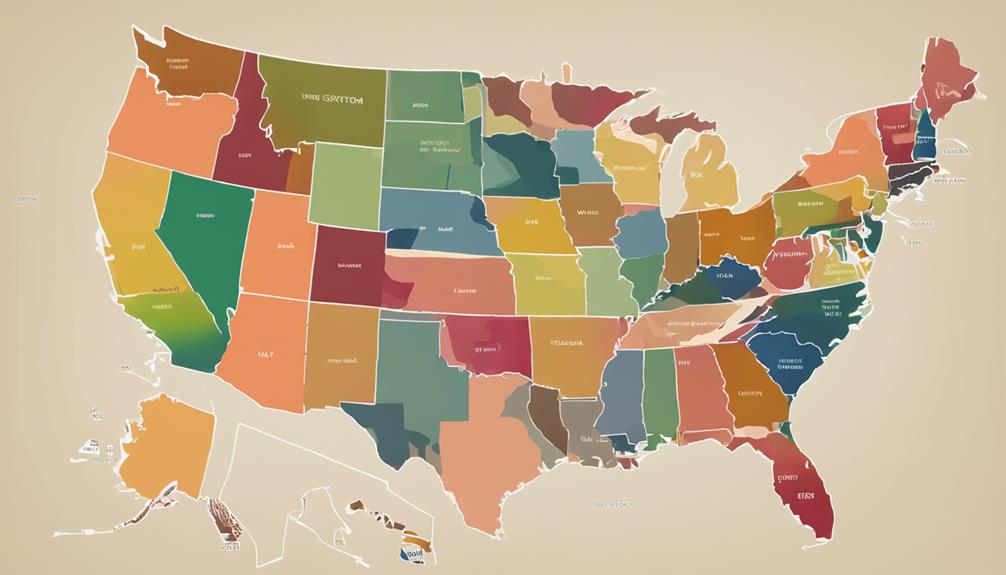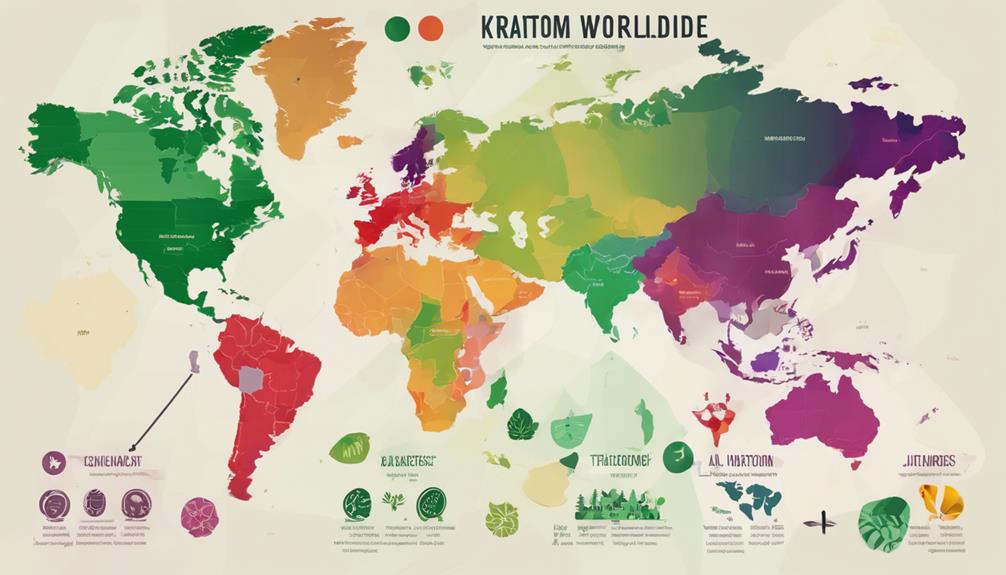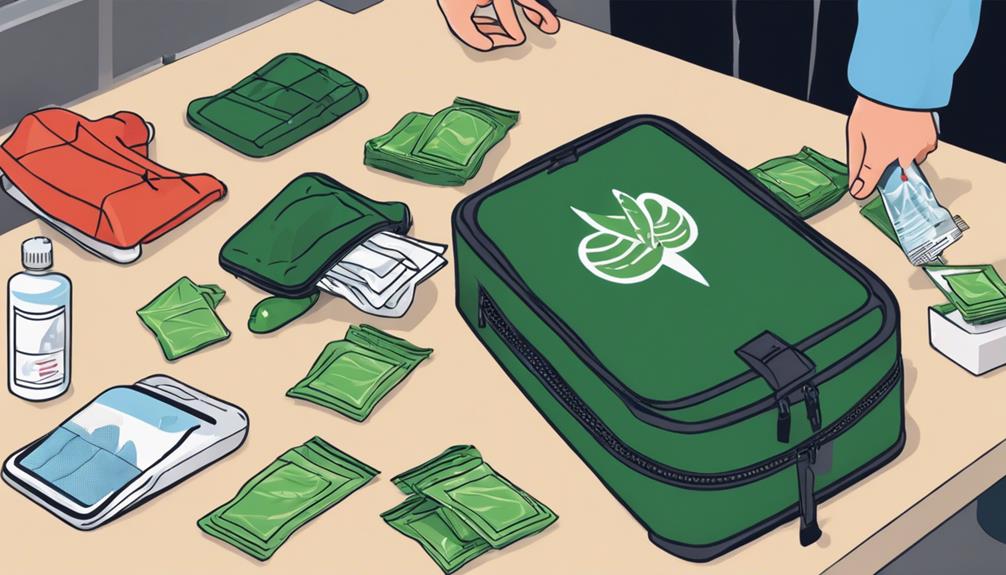So, you fancy yourself a bit of a kratom enthusiast, do you? Well, buckle up because it’s time to look into the wild world of kratom legality across the United States. Strap in, dear reader, as we take a trip through the states where kratom is strictly off-limits. It’s a bumpy ride, but fear not – your trusty guide is here to steer you through the twists and turns of this psychedelic legislative landscape. Let’s get started, shall we?
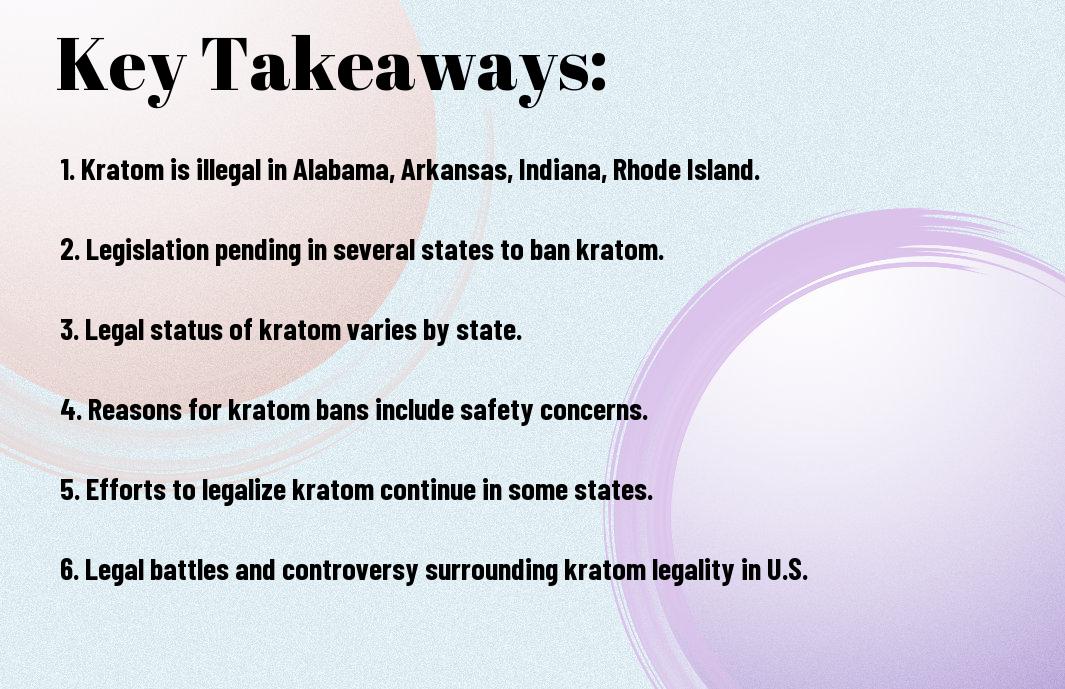
The Kratom Conundrum
What is Kratom, Anyway?
For those unfamiliar with kratom, it’s a tropical tree native to Southeast Asia. The leaves of the kratom tree are dried and ground into a fine powder, which can be consumed in various ways, including brewing it into a tea or mixing it into other beverages.
The Rise of Kratom’s Popularity
One reason for kratom’s surge in popularity is its reputation for providing a natural energy boost and promoting a sense of well-being. Some users also claim that kratom helps alleviate pain and reduce anxiety. However, it’s important to note that the scientific research on kratom’s effects is still limited, and the FDA has raised concerns about its safety and potential for abuse.
Rise in the number of kratom users has led to a heated debate about its legality and regulation. While some believe in its potential benefits, others are concerned about its safety and addictive properties. The clash between these viewpoints has created what can only be described as a kratom conundrum.
States Where Kratom is Illegal
Little did you know that kratom, a popular herbal supplement, is actually illegal in certain states across the U.S. Let’s take a look at some of the states where kratom is banned and the reasons behind these prohibitions.
Alabama: The First to Ban
An interesting fact for you – Alabama was the first state to outlaw the possession, sale, and distribution of kratom back in 2016. The state categorized kratom as a Schedule I controlled substance due to its psychoactive properties, placing it in the same class as drugs like heroin and LSD.
Arkansas: Following Suit
To add to the list, Arkansas quickly followed Alabama’s lead and banned the sale and possession of kratom in 2016. The state’s authorities raised concerns over the lack of regulations and oversight on kratom products, fearing potential risks to public health and safety.
The lawmakers in Arkansas were particularly alarmed by reports of kratom-related deaths and its potential for abuse. These factors contributed to the decision to ban kratom across the state.
Indiana: Kratom-Free Zone
KratomFree Zone, that’s what Indiana declared itself to be in 2014 when it became one of the first states to prohibit the sale and possession of kratom. The state listed two active compounds in kratom as synthetic substances, leading to its classification as a controlled substance.
Understanding your interest in kratom, it’s important to note that Indiana’s ban on kratom stemmed from concerns about its addictive nature and the lack of scientific evidence supporting its benefits. This decision aimed to protect the public from potential harm associated with kratom use.
Rhode Island: The Ocean State Says No
Kratom faced a setback in Rhode Island when the state passed a law in 2017 making it illegal to manufacture, sell, or possess kratom. State officials were worried about the lack of regulation in the kratom industry and the potential dangers posed by unmonitored consumption.
State health authorities in Rhode Island cautioned against the use of kratom due to its potential for abuse, addiction, and adverse effects on health. This led to the state’s firm stance on prohibiting kratom within its borders.
Vermont: The Green Mountain State Goes Cold
Cold-hearted towards kratom, Vermont enforced a ban on the sale and possession of kratom in 2020. The state took this action to prevent the misuse of kratom and protect its residents from the risks associated with unregulated kratom products.
Vermont’s decision to outlaw kratom was driven by concerns about its potential for dependence, adverse effects on health, and lack of oversight in the kratom industry. The state prioritized public safety and health in its efforts to keep kratom out of circulation.
Wisconsin: Badger State Bans Kratom
Badger State, Wisconsin, joined the list of states prohibiting kratom in 2014 when it labeled kratom a controlled substance. The state argued that kratom posed risks to individuals’ health and public safety, leading to its ban across the state.
Bans were imposed in Wisconsin to prevent the misuse and abuse of kratom, as well as to address concerns about its potential for addiction and adverse effects on users. The state’s decision reflected a cautious approach to regulating substances with psychoactive properties like kratom.
The Reasons Behind the Ban
FDA Warnings and Health Concerns
An FDA spokesperson once said, “Kratom is not only a drug but also harmful to your health.” According to the FDA, kratom has been associated with serious risks, including seizures, respiratory depression, and even death. The agency has issued multiple warnings about the dangers of kratom consumption and has actively worked to have it banned in several states.
DEA’s Stance on Kratom
On the other hand, the DEA considers kratom to be a potential threat to public safety. The agency has listed kratom as a “Drug of Concern” and has attempted to place it in the Schedule I category, alongside substances like heroin and LSD. The DEA has cited concerns about kratom’s addictive potential and the lack of regulation in its production and distribution.
It seems that the DEA views kratom as a substance that has the potential for abuse and poses significant risks to those who consume it. The agency’s stance reflects a larger push to control substances that may have psychoactive effects and could lead to unintended consequences.
The Opioid Epidemic Connection
Health experts have also pointed to a potential connection between kratom and the opioid epidemic. Some argue that kratom’s effects on the brain and body are similar to those of opioids, leading to concerns about its potential for addiction and misuse. This has fueled calls for stricter regulations on kratom and contributed to the ban in several states.
Reasons for the Ban.
The Legal Battle
All across the United States, the legal battle surrounding kratom continues to unfold. Advocacy groups, lawsuits, court rulings, and the future of kratom legislation are all key components in the ongoing struggle for the acceptance of this controversial plant.
Advocacy Groups Fighting Back
One of the fronts in the legal battle over kratom is the fight led by advocacy groups. Organizations like the American Kratom Association are dedicated to educating the public, promoting research, and fighting for the legal rights of kratom users. These groups work tirelessly to challenge proposed bans and restrictions at both the state and federal levels, advocating for the continued availability of kratom for those who rely on it.
Lawsuits and Court Rulings
For some, the legal battle has taken a more formal turn with lawsuits and court rulings coming into play. Individuals and groups have taken legal action to challenge kratom bans and regulations, arguing that such measures infringe on their rights and access to a plant they believe to be beneficial. Court rulings have varied, with some upholding kratom restrictions and others striking them down, leading to a complex and evolving legal landscape surrounding this natural substance.
Another aspect of the legal battle involves the interpretation and application of existing laws in relation to kratom. Legal experts and advocates scrutinize statutes and regulations, seeking opportunities to clarify the legal status of kratom and ensure that any restrictions are based on sound evidence and reasoning.
The Future of Kratom Legislation
Legal challenges and advocacy efforts are shaping the future of kratom legislation in the United States. As the debate continues and more information becomes available, the legal status of kratom may evolve. Potential regulatory frameworks, research initiatives, and public perception all play a role in determining how kratom will be treated legally in the coming years.
Legal experts predict that the trajectory of kratom legislation will likely be influenced by ongoing scientific studies, public opinion shifts, and the outcomes of legal battles. It remains to be seen whether kratom will find broader acceptance and legal protection or face increased scrutiny and regulation in the future.
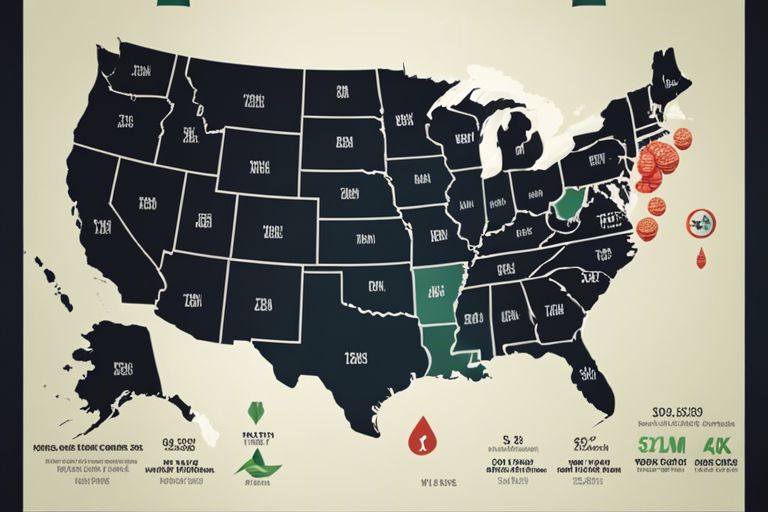
Alternatives for Kratom Users
Keep in mind that if kratom is illegal in your state, there are still alternatives available to help you manage your needs.
Legal Herbs and Supplements
Legal herbs such as kava, chamomile, and valerian root can offer relaxation and stress relief similar to kratom. Supplements like CBD oil and turmeric can also help with pain management and provide a sense of well-being.
Prescription Medications
Supplements such as 5-HTP and L-theanine can help regulate mood and promote relaxation. These options are often available over the counter and can be a safe alternative for managing anxiety and stress.
Another option to consider is exploring prescription medications with your healthcare provider. They can recommend options like antidepressants or anti-anxiety medications that may be suitable for your needs.
Lifestyle Changes
If you’re looking to make broader changes in your lifestyle to address the reasons you were using kratom, consider incorporating practices like mindfulness meditation, yoga, or regular exercise into your routine. These activities can help promote overall well-being and reduce stress levels.
Kratom should not be seen as the only solution to managing your symptoms. By making positive lifestyle changes, you can improve your overall health and well-being in the long term.
Plus, you never know, you might discover a new hobby or passion along the way!
The Impact on Local Businesses
Kratom Shops Forced to Close
Not all businesses are able to weather the storm when kratom is made illegal in a state. Kratom shops that once catered to a steady stream of customers seeking the natural supplement are forced to close their doors. For these entrepreneurs who believed in the benefits of kratom, the sudden ban can be devastating.
Economic Consequences
On top of the direct impact on kratom retailers, there are broader economic consequences for the community. Local economies lose out on the revenue generated by kratom sales, including taxes that would have been collected from these transactions. This loss can have a ripple effect on other businesses that relied on the patronage of kratom consumers.
To make matters worse, the underground market for kratom may thrive in the absence of legitimate businesses selling the product. This could lead to an increase in illegal sales and potentially dangerous products making their way into the hands of consumers, further jeopardizing public health and safety.
Job Losses and Community Effects
The closure of kratom shops doesn’t just affect business owners; it also results in job losses for employees who worked in these establishments. These individuals may struggle to find new employment opportunities in an already competitive job market, adding to the economic hardship faced by the community.
The impact goes beyond just financial losses. Kratom shops often served as community hubs where like-minded individuals could gather, share information, and support each other in their wellness journeys. The loss of these spaces can leave a void in the community, affecting social connections and support networks.
Summing up
Following this exploration of states where kratom is illegal, it’s clear that laws surrounding this plant-based substance vary widely across the United States. It’s important to stay informed about the legality of kratom in your state, as regulations can change frequently. Remember to always check for updated information before purchasing or using kratom in your area. While it may be disappointing that kratom is prohibited in some states, there are still many other states where it is legal, allowing individuals to access this natural supplement for various purposes.
FAQ
Q: In which states is kratom illegal?
A: As of September 2021, kratom is illegal in Alabama, Arkansas, Indiana, Rhode Island, Vermont, and Wisconsin.
Q: Is kratom legal in all other states?
A: Kratom is legal in most states, but the legal status can vary. It is important to check the laws in your specific state to ensure kratom is legal.
Q: Why is kratom illegal in certain states?
A: The legality of kratom is determined by individual states based on various factors, including safety concerns, potential for abuse, and lack of regulation.
Q: Can the legality of kratom change in a state?
A: Yes, the legality of kratom can change in a state due to new legislation, regulatory actions, or public opinion shifts.
Q: Are there efforts to legalize kratom in states where it is currently illegal?
A: Yes, there are advocacy groups and individuals working to legalize kratom in states where it is currently illegal. These efforts involve education, research, and legislative actions.
Q: Can I travel with kratom to a state where it is illegal?
A: It is not recommended to travel with kratom to a state where it is illegal, as you may face legal consequences. It is important to abide by the laws of the state you are traveling to.
Q: How can I stay informed about the legal status of kratom in my state?
A: You can stay informed about the legal status of kratom in your state by regularly checking official state websites, contacting local authorities, and following updates from kratom advocacy groups.






